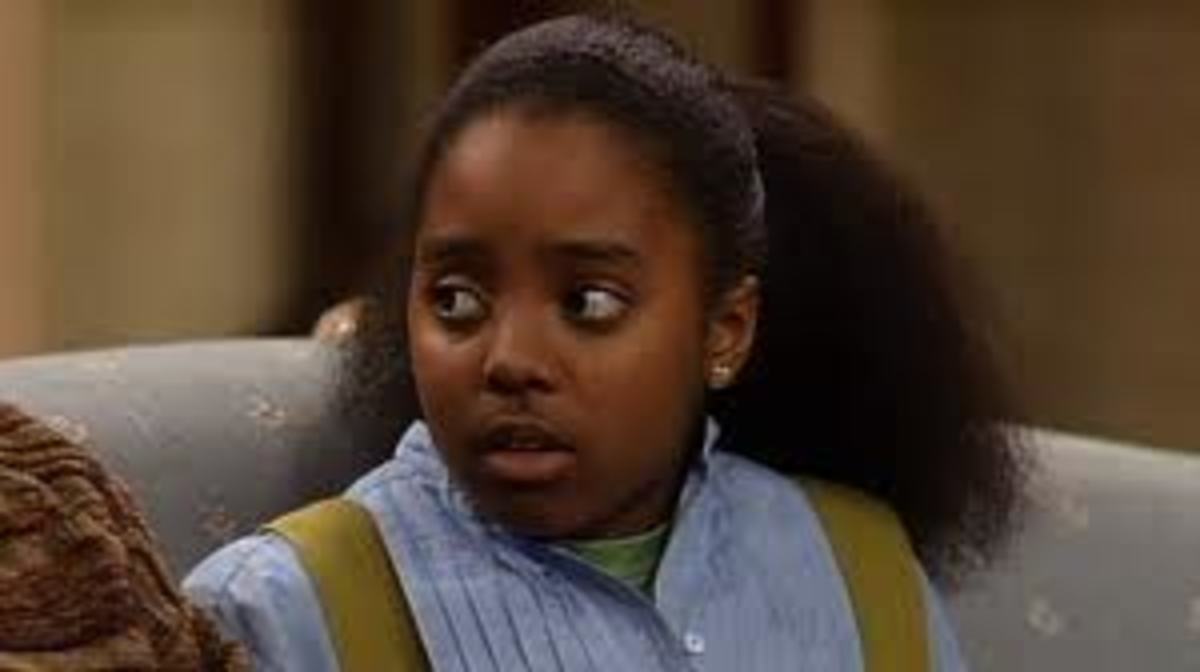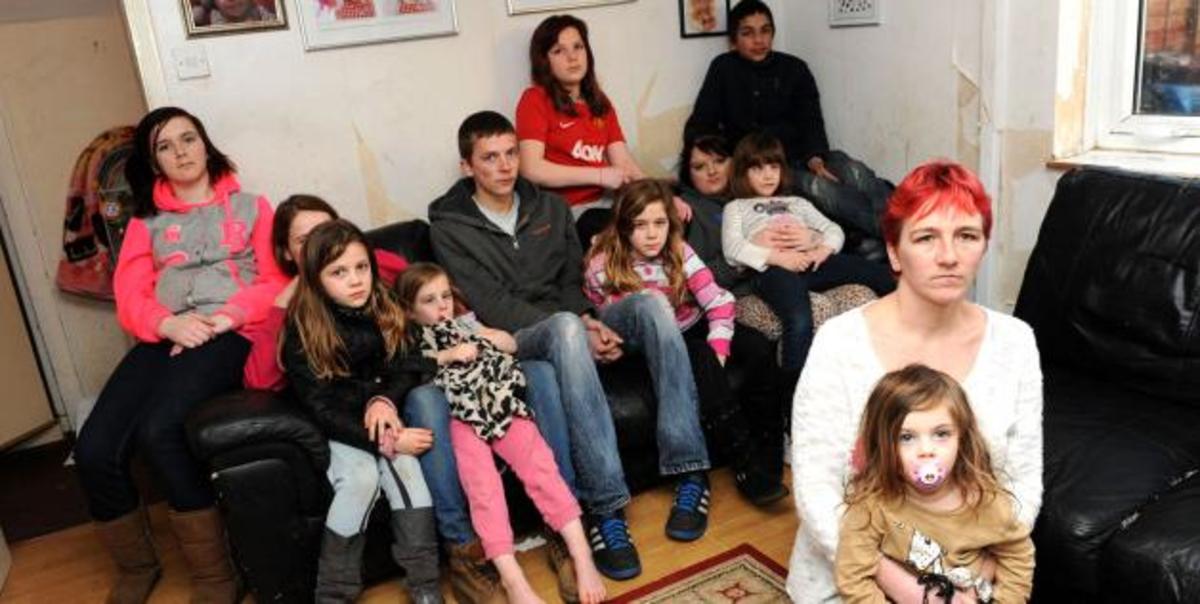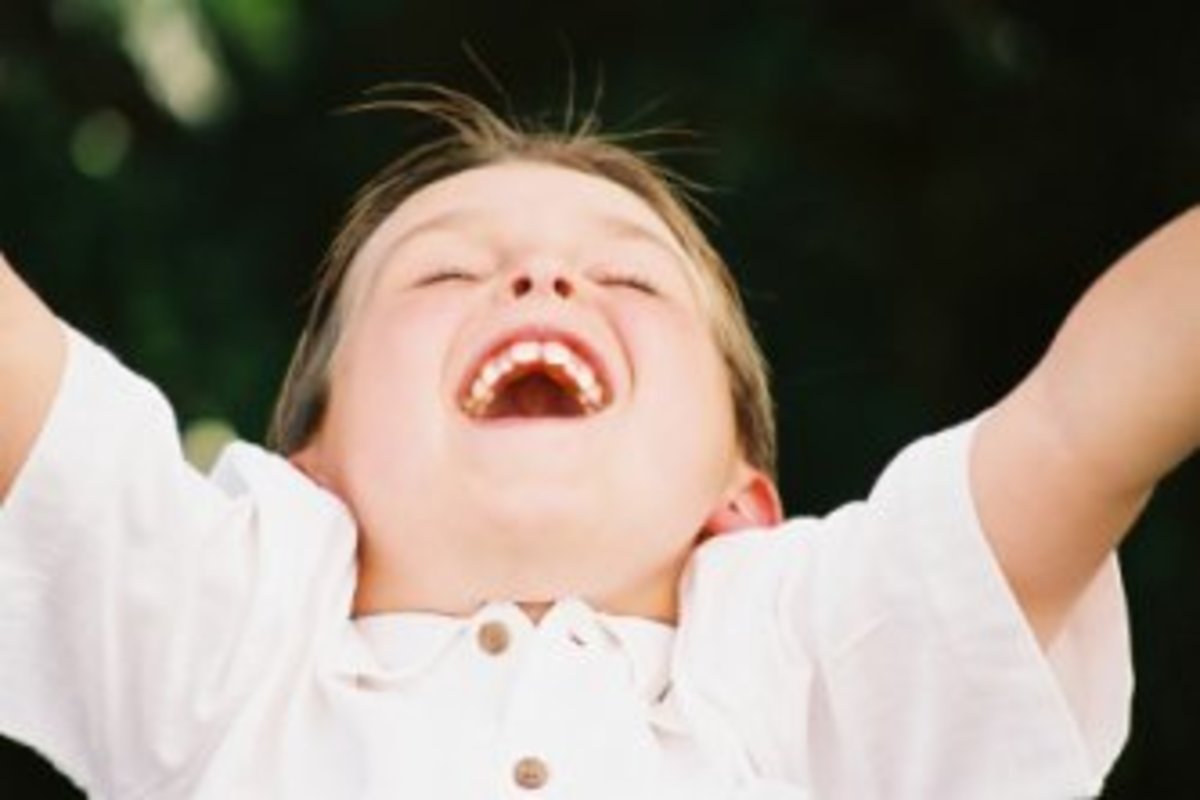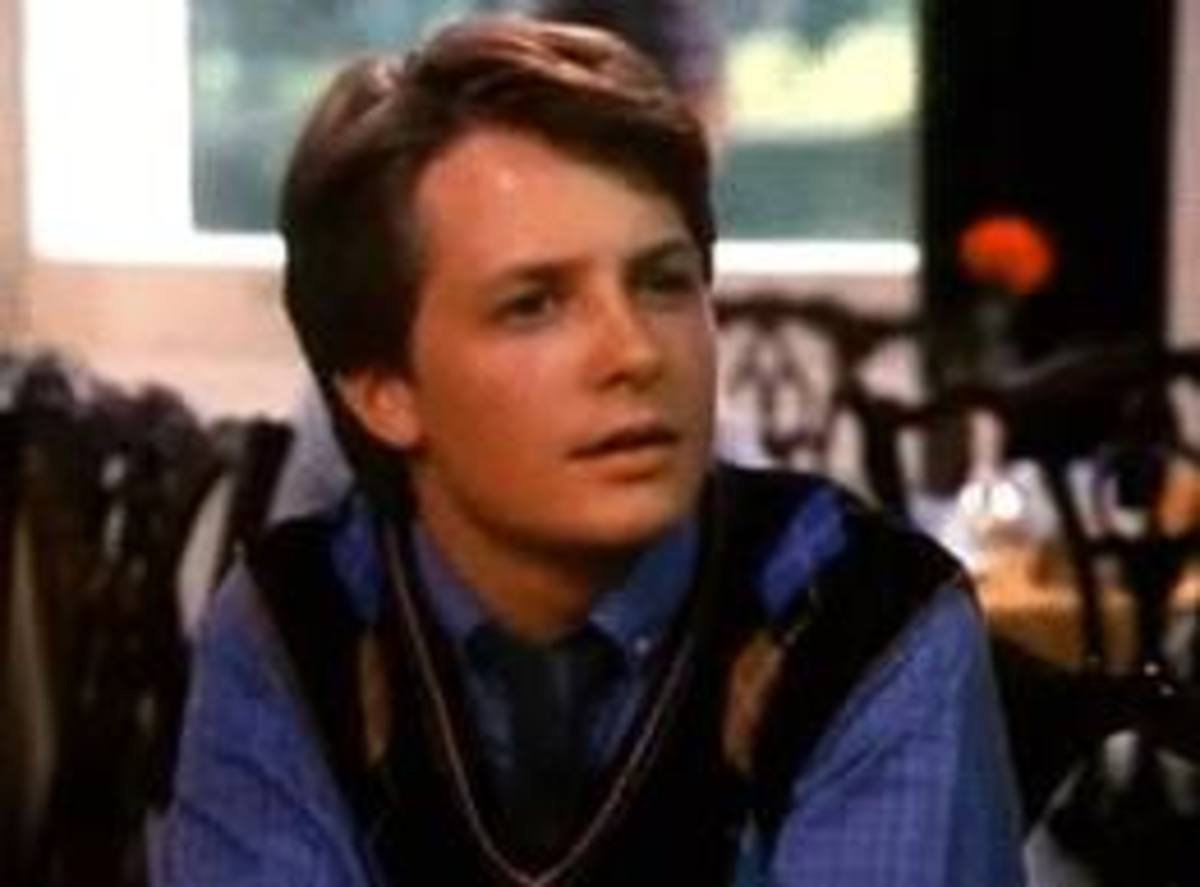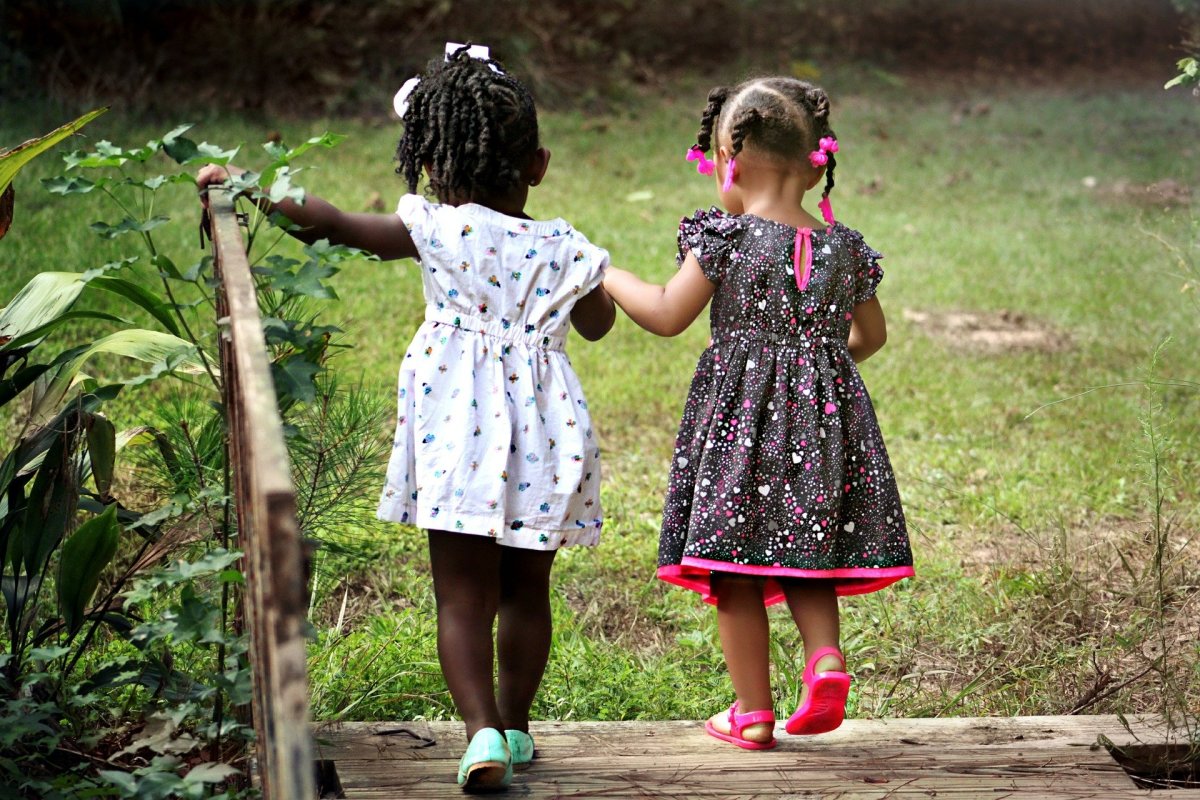The Oldest Child In The Large And Very Large Family, Part 1/2

Shortest Childhoods & The MOST Responsibilities of ALL Birth Orders
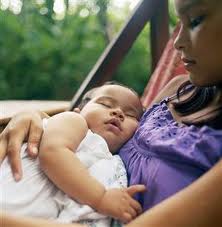

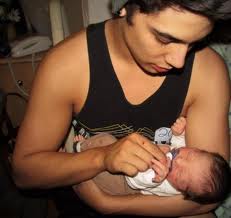
Oftentimes CAST Aside in FAVOR of Younger Siblings
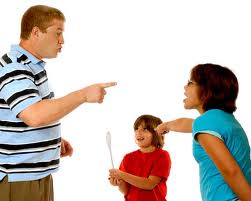
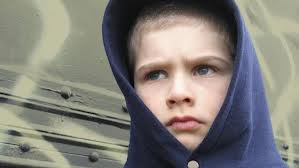

Taken for Granted-THANKS But NO THANKS

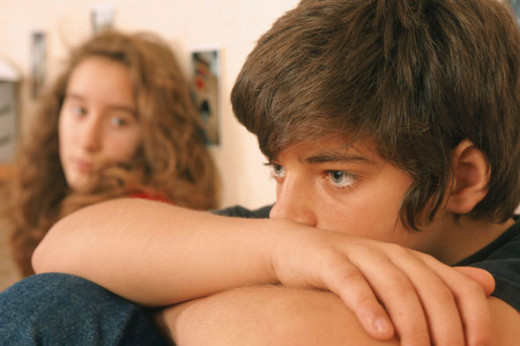

Neverending: From Dawn To Dusk, It's 24/7/365
This hub was inspired by my request, Why do oldest children tend to be cast aside and not paid sufficient attention in multichild families? This hub is divided into 2 parts. The status of being the oldest child in the family is often a tenuous one. It is he/she is must be the standard bearer for the rest of the family. He/she often has to be the mature and stoic one, always exhibiting a strong exterior no matter what. He/she is oftentimes forced to grow up without having a normative childhood.
I. Expected to Grow Up FAST, Disposable
Of course, these are truisms. In large and very large families(families with 6 and more children per family), the situation is to the 100th power. Oldest children in large and very large families have the shortest childhoods and are expected to mature very fast. They are also the ones that are the most disposable by their parents. By disposable I mean that the needs of the oldest child are not considered by the parents. He/she is not seen as important as the younger children, particularly the youngest child in the family.
II. Shown LESS Parental Affection
Parents of large and very large families tend to be less affectionate and involved in the lives of their oldest children. It is their estimation that their oldest child can do well by himself/herself and really do not need them. The average parents of large and very large families see their oldest child not as a child but as a protoadult, even in childhood. The oldest child is expected to be adultlike and to be the strong one in the family.
III. Seen and Treated as ADULTS
The oldest child in the large family environment , even in childhood, is expected to be as near an adult as possible and to help raise the younger siblings. The concept of a normative childhood is absent in the life of oldest children in large to very large families. While other children have normative childhoods, the oldest child is often an adult before his/her time. It is the oldest child in large and very large families who oftentimes neither have any childhood friends nor participate in activities that other children do. He/she is busy doing the brunt of the chores, probably working after school to help supplement the family income, and/or raising his/her younger siblings.
IV. VERY Little Parental Involvement
The average parents in large and very large families have little part in raising their children. The main person who oftentimes raise the younger siblings is.............the oldest child. In fact, the oldest child is assigned to raise the younger ones as the parents oftentimes feel quite overwhelmed with this duty. Frankly, it is impossible for two parents to raise a large and very large family on their own. This is simple mathematics. There is a larger ratio of children to parents in such families. The parents need help so they enlist the oldest and/or the older children to raise the younger ones in order to alleviate some of the former's responsibilities raising them.
V. Putting Others FIRST, Themselves LAST
The oldest child in large and very large families is expected to put his/her need last. After all, the parents and younger ones need him/her to be on. To say that the status of the oldest child in a large and very large family is analogous to being an unpaid au pair is the understatement of the millennium. He/she has to be at the call of his/her parents and younger siblings 24/7/365 with little letup.
There is a phenomena in which the child assumes the caretaker role for his/her family. It is called the parentified child. This was coined by Gregory J. Jurkovic, Ph.D., a psychologist to describe children who assume parenting and/or caretaking responsibilities, particularly for their younger siblings. James Bossard, a sociologist who specializes in studying the large family dynamic, maintained that it is quite commonplace for oldest children in large to very large families to raise their younger siblings.
VI. Receiving No Parental Attention Which is DIVERTED to Younger Siblings
Oldest children in large and very large families, of course, do not receive adequate parental attention. Parental attention is often diverted to the younger children as it is believe that the younger ones need the attention more. This means that the oldest child oftentimes left to his/her own devices if he/she is not asked to be the parent. Many oldest children in large and very large families are quite bereft of parental attention. It seems to such children that they do not matter to their parents unless they are "DOING" i.e. either doing things for the parents or the younger siblings.
VII. Learning to DEPEND and RELY Upon Themselves
As of result of ever decreasing parental attention with each succedent child, many oldest children in large and very large families develop an extremely tough exterior. They assert that they must be tough and depend only upon themselves because the most important people(their parents) have deserted them so to speak. Some oldest children become attention cravers and extremely needy especially as adults. They figure that since they did not receive the prerequisite parental attention, they will seek such attention elsewhere. I remember one coworker, who was the oldest of 8 children, whom every time a worker was praised, she would divert the attention from the said coworker to herself. She also would complain that when is someone going to do things for her and pay attention to her.
VIII. Craving Attention, Even Negative Attention
Many times the attention that many oldest children in large and very large families seek are negative in nature. In an article in Essence Magazine not so long ago, a teen, the oldest child in a large family, asserted that she joined a gang because she was seeking the acceptance and attention that she did not receive from her parents. There are some oldest children who enter into the first relationship where someone shows them any type of affection, much to deleterious results later on.
IX. Being Disrespected, Used, and Otherwise Unappreciated
Oldest children in large and very large families get the shaft so to speak in many ways. They are often cast aside in preference to the younger children in the family. They are strongly inculcated to put themselves last or at least, next to last as they are not deemed as important as the younger ones in the family. They are furthermore treated the most differentially by their parents albeit in a harsher sense. They are expected to grin and bear it regarding their circumstances.
Oldest children in large and very large families do not have glamorous advisory and leadership roles as their counterparts in smaller families of 2 children. The roles of oldest children in large and very large families can be described as put upon and totally unglamorous. They have the very worst part of being the oldest child. Instead of being seen as the leader and adviser, they are the overburdened, overused, and unappreciated parent/caretaker. They are routinely taken for granted by either parents and/or younger siblings. If they expect thank yous and other forms of appreciation, forget it, as such responsibilities are an unspoken and unwritten obligation, no more, no less.
X. Being Expected, Even Demanded to Shoulder THE MAJORITY of the Responsibilities Without Complaint
The attitude of average parents of large and very large families is that their oldest child should do these tasks willingly and without complaint. They reason after all this child is part of the family and as the oldest, should take upon many of the responsibilities. They further contend that the oldest child should be the most responsible one and one willing to sacrifice for the younger siblings. They assert that if the oldest child believes that he/she is being overburdened and treated unfairly then he/she should stop whining like a baby and grow the $%^&! up- after all, they, as parents, CANNOT do EVERYTHING.
These parents add that so what that the oldest child miss some part of his/her childhood. They maintain that they are a family and the oldest has to be the second adult in the family after them. Many an oldest child cannot participate in normative childhood and teenage activities because he/she had to be the family caretaker. If you are the oldest child in a large and very large family, do not even think about doing the things YOU enjoy, like going out with friends and having fun-THAT IS TOTALLY OUT. In other words, YOU ARE NEEDED to perform your duty, obligations, and responsibilities. Most important of all, you did not even volunteer for this, you were DRAFTED so to speak and you can do nothing about the situation at hand whatsoever. You just endure your situation in silent anger.
© 2013 Grace Marguerite Williams



